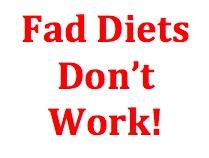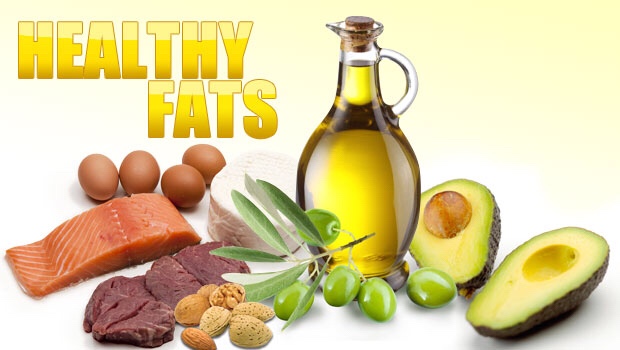What follows is the second in the series, “What I Did Wrong.” A quick look at my home bookshelves or inside my Kindle would tell you that I have been a lifelong professional dieter. As I said in an earlier post, I have lived my entire adult life in fear of returning to that obese teenager who was ridiculed in gym class. You name the weight loss strategy, I have tried it. As a medical student and resident I received little to no training in nutrition. There was no google back then so the bulk of what I learned about weight loss came from books and magazines. Whenever I committed to a plan, I would lose weight. Most of us can lose weight regardless of which diet we choose. But just like the contestants on The Biggest Loser – almost all of us gain it back!
As Dr. Jason Fung explains in his book, The Obesity Code, most calorie restriction diets are doomed because our bodies try to protect us from completely wasting away by lowering our basal metabolic rates and making us hungrier. It takes fewer calories to move a smaller body so even our exercising becomes less effective. Along comes the dreaded plateau and we become disenchanted with the diet and go back to the eating patterns that made us overweight in the first place! At this lower metabolic rate we often end up gaining even more weight when we return to our previous eating patterns. Unless you have chosen a plan that you can continue to live with over the long run, weight regain is practically inevitable. This fact lets us yoyo dieters off the hook. It is not our fault, we have been sabotaged by our own bodies!

News flash! DIETS DON’T WORK. For example, most of us have ingrained in our psyche to avoid fat and have tried a low fat diet. Go down the aisle of any grocery store and you will see product after product of low fat processed foods. If you look closely, however, you will see that the makers of most of those products have taken out the fat and replaced it with sugar. Ironically, since all of these low fat foods have been available, we as a nation have gotten fatter and fatter. We have been deceived by the food industry into thinking that fats makes us fat when it is actually sugar (and those foods that turn into sugar) that makes us fat. Sugar in all its forms triggers the release of insulin which not only works to keep our blood sugar from getting too high, but also encourages our bodies to store the excess sugar as fat! Many of us who have spent years eating “diet” foods have damaged our bodies response to insulin and have to produce more and more of this fat storage hormone to keep our blood sugar at normal levels. This is known as insulin resistance. Those of us who have this insulin resistance have a harder time losing weight. There is much controversy about the multifactorial causes of obesity but there is no disagreement that long term weight control involves keeping insulin levels low.

So rather than going on diet after fad diet, why don’t we seek out a lifestyle that will keep our insulin levels low on a long term basis. As a Pre-diabetic, I have come to understand that my struggles like many of yours came down to the effects of high insulin levels triggered by low fat diets, too much sugar and other starches and what I like to call recreational eating. I was able to keep my weight barely in the normal range with exercise and portion control. However, it was not until I made changes in my lifestyle to keep my insulin levels down that I was finally able to see a significant change in not only my weight but my overall health and sense of well being. At the age of 64 I am fitter than I have ever been and my energy level has markedly increased! It is never too late to turn the page on an unhealthy lifestyle!
After 6 months of tweaking my own behaviors, this is now my forever lifestyle.
Dr. Moore’s Lifestyle Tips to Promote Wellness and Avoid Disease
1. Avoid added sugars, white bread, potatoes, pasta, and deep fried foods as well as ALL junk food. There is a reason it is called junk! Ditch sugary drinks and fruit juices and drink more water! You are better off eating an orange with its fiber than drinking the orange juice.
2. Increase your intake of non-starchy vegetables and green salads. Make berries your preferred fruits. These are less likely to spike insulin levels. Insulin is a fat storage hormone.
3. Include a small amount of lean protein (fish, shellfish, lean meats, poultry, nuts and eggs) at each meal.
4. Incorporate foods containing healthy fats into your meals. Some examples of such foods are salmon, avocados, olive oil, olives, flax seeds, eggs and nuts. Healthy fats are important to satiety and controlling hunger. Healthy fats at mealtimes will help you to stop snacking in between meals.

5. Time restricted eating – stop eating 2-3 hours before bedtime and eat breakfast only when physically hungry. Your first meal of the day is still breakfast (breaking your fast), regardless of how late you choose it eat it. These periods without food result in lower levels of insulin which will help prevent fat storage. This is a very gentle form of intermittent fasting.
6. Try to get in at least 30 minutes of exercise most days, preferably BEFORE eating. This allows your body to rely on your stored fat to fuel your exercise. This can be as simple as taking a brisk walk.
7. Eat intuitively rather than recreationally. Eat only when you are physically hungry and stop when you are full. Practice portion control.
8. Sleep 7-8 hours each night. Proper rest is important to control not only your insulin levels but also your hunger and fullness hormones.
9. Move around more during the day. Do not sit when you can stand. Take the stairs over elevators and escalators. Just there is a people mover or moving sidewalk available does not mean you have to use it! Get an activity tracker and aim for 10,000 steps a day.
10. EAT REAL FOOD!! When eating out choose whole unprocessed foods and ask that your food be prepared simply and in a healthy way. Better yet, whenever possible, try preparing healthy meals at home. This way you know EXACTLY what you are eating.
I make no claims that the course I have chosen is applicable to everyone reading this post. However, if you have been struggling to get healthy like I was you might consider giving it a try. What have you got to lose?
Be Blessed,
Yvonne Moore
“Dear friend, I hope all is well with you and that you are as healthy in body as you are strong in spirit.” 3 John 1:2 (NLT)

Leave a comment